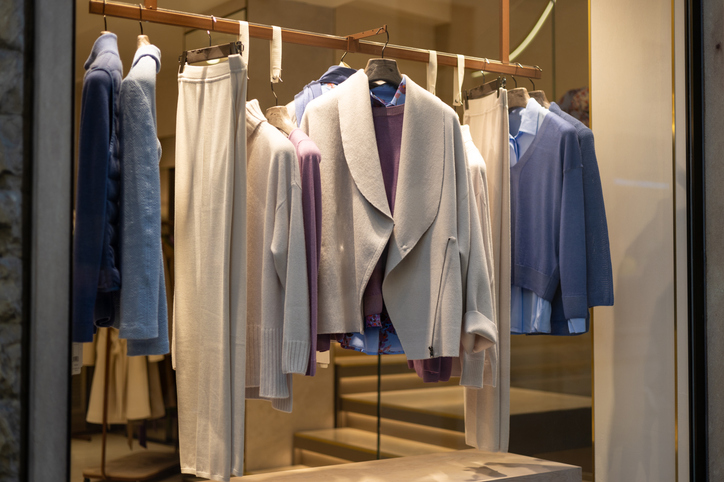Finding the right leader for a luxury brand is a bit like selecting the finest piece of jewellery—something that requires careful consideration and a keen eye. Luxury brands thrive on their reputation for excellence, and their leaders must reflect this. They should not just manage but inspire and elevate the brand to new heights.
Identifying these leadership qualities in potential candidates is crucial to maintaining the prestige and allure that define luxury. A good leader in this sector possesses not only traditional management skills but also an innate understanding of luxury markets. They should have an unyielding attention to detail and an ability to connect with high-end consumers.
As we explore what makes a great leader for a luxury brand, it’s important to consider both the visible and less obvious qualities. From decision-making skills to a strong alignment with the brand’s values, spotting these attributes early can make a significant difference in a candidate’s potential to succeed. By honing in on these characteristics, brands can ensure their continued success and desirability in a competitive market.
Key Leadership Traits in Luxury Brand Candidates
Leadership in the luxury sector requires a unique blend of skills and qualities. Let’s explore which traits distinguish exceptional leaders in this field. Firstly, emotional intelligence is critical. Leaders must understand and empathise with customers and team members, ensuring personalised experiences that reflect the brand’s exclusivity. Secondly, decision-making skills are crucial, especially when balancing innovation with the brand’s heritage.
Effective communication stands out as another vital trait. Leaders should articulate the brand’s vision and values clearly both internally and externally, inspiring confidence and loyalty. Attention to detail cannot be ignored, either. In luxury brands, every aspect, from product design to customer service, must reflect precision and excellence.
In high-end markets, these qualities are essential. Luxury consumers expect not just products, but experiences. Leaders who embody these traits can navigate the nuanced expectations of high-value clients, ensuring the brand remains coveted. A leader’s ability to manage relationships with both customers and partners directly influences the brand’s reputation and success.
Examples of effective leadership in luxury settings often involve balancing tradition with modernity, respecting the brand’s legacy while introducing innovative ideas. By recognising these key traits, brands can better identify candidates who will lead with both finesse and effective strategies.
Evaluating Potential Through Recruitment
Identifying leadership potential during recruitment is an art. It’s about looking beyond the resume and delving into what truly makes a candidate suitable for a luxury brand. Interviews remain a crucial tool. Asking open-ended questions can reveal a candidate’s thought process, creativity, and problem-solving skills. Questions like, “How would you handle a customer complaint about a luxury product?” can show real-world application of their skills.
Another effective method is the use of psychometric assessments. These tests provide insights into personality traits and cognitive abilities, helping to identify leaders who possess strategic thinking, resilience, and adaptability. They offer an objective view of a candidate’s suitability for leadership roles.
Scenarios and role-playing exercises are also insightful. They simulate real-world challenges a leader might face, allowing candidates to demonstrate their skills in live-action settings. For example, role-playing a scenario where a luxury product is delayed offers insights into how a candidate prioritises tasks and communicates under pressure.
By combining these techniques, recruiters can more effectively assess a candidate’s leadership potential. It allows them to see how candidates may perform in real situations, evaluating not just what they know, but how they apply their knowledge in a luxury context.
The Importance of Cultural Alignment and Vision
In luxury brands, cultural alignment is crucial. Leaders need to resonate with the brand’s ethos to effectively guide their teams. A misalignment can lead to decisions that seem off-brand, affecting customer loyalty. Ensuring candidates align with the brand’s culture during recruitment is essential. Evaluating their past experiences can offer insights into how well they might fit.
A leader’s vision must align with the company’s goals. They should understand and be committed to maintaining the brand’s luxe identity while striving for growth. During recruitment, discussing long-term goals can reveal if a candidate’s ambition aligns with the company’s direction.
To evaluate a candidate’s ability to embody luxury values, consider their past achievements in similar environments. Look for how they have upheld high standards and dealt with challenges. A strong candidate will have a history of decisions and actions that reflect key luxury brand traits, such as exclusivity and premium quality.
Continuous Development and Leadership Growth
Nurturing leadership talent is vital for the sustainability of luxury brands. Investing in continuous development ensures leaders can adapt and thrive. Luxury brands benefit from leaders who are not static but grow with market trends and consumer expectations.
Training programmes tailored for executives can enhance leadership skills long after the recruitment phase. These programmes should focus on strategic thinking, brand management, and customer relations specific to luxury sectors. Mentorship schemes also offer invaluable support, pairing less experienced leaders with seasoned mentors who provide guidance and perspective.
Feedback and performance reviews play a significant role in leadership growth. Regular reviews help leaders understand their strengths and areas for improvement. Constructive feedback promotes self-awareness and professional development, crucial in luxury settings where excellence is expected.
Conclusion
Identifying and nurturing leadership qualities in luxury brand candidates is more than selecting a list of skills—it’s about finding individuals who inherently understand and enhance the brand’s values. These leaders are critical in maintaining the brand’s prestige and relevance in an ever-evolving market.
By focusing on key traits, cultural alignment, and continuous growth, luxury brands can cultivate leaders who personify excellence. These leaders not only navigate current challenges but also foresee future opportunities, ensuring the brand remains desirable and competitive. For brands looking to secure their leadership legacy, it’s crucial to refine their methods of evaluation and invest in ongoing development.If you’re on a quest to find the perfect leaders for your luxury brand, IB Talent Search is here to help. Our specialised recruitment services ensure you attract candidates who not only exhibit the exceptional leadership qualities you require but also align seamlessly with your brand’s culture and vision. Let us assist you in finding leaders who are ready to elevate your brand to new heights.





